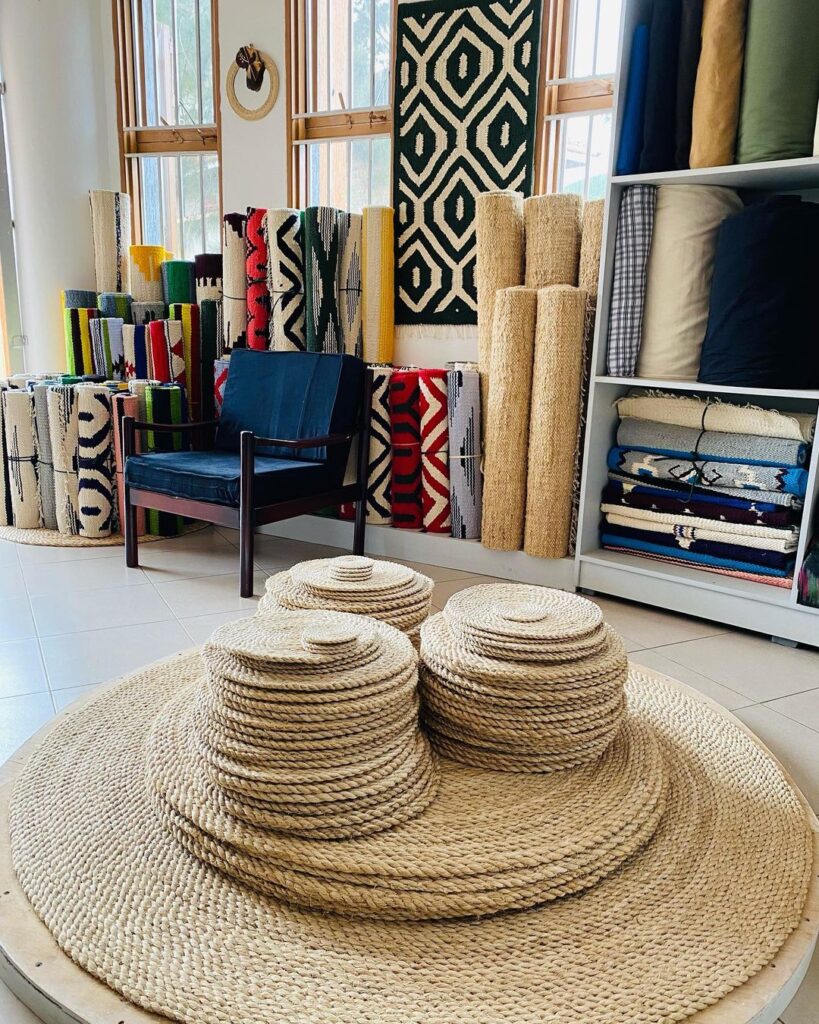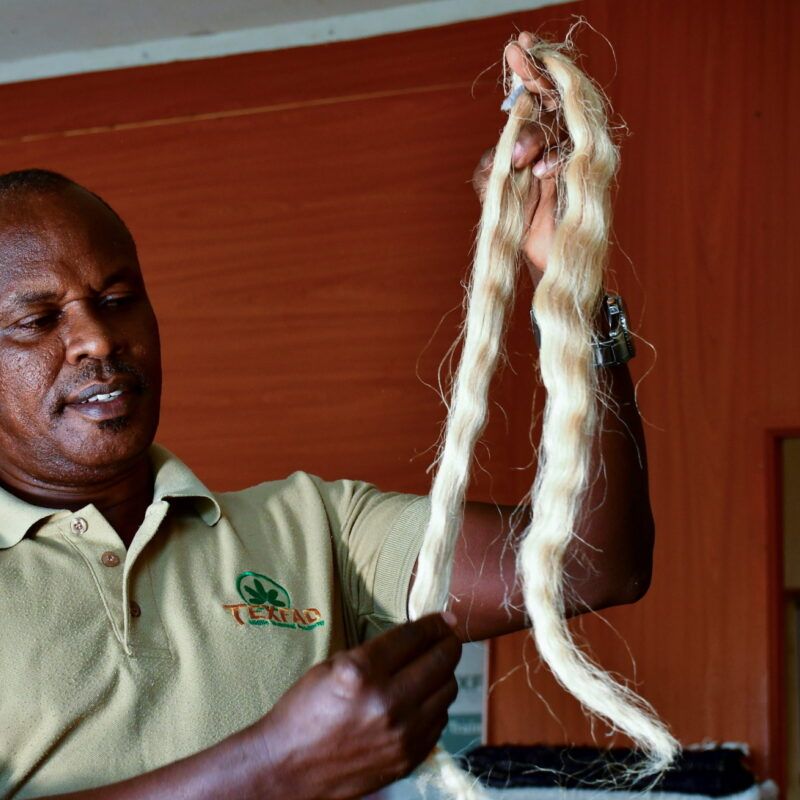In January 2023, the World Economic Forum published a circular transformation white paper in collaboration with Bain & Company, the University of Cambridge and INSEAD. Insights from the paper revealed that companies that embark on circular transformation, creating more adaptable operating and business models, are better positioned to prosper, even in times of disruption, while contributing to sustainable growth.
This kind of circular transformation is already happening in Uganda where TEXFAD – a banana textile company that produces handwoven textiles – transforms waste banana pseudo stems and other waste materials into high quality sustainable textile products.

Founded by Kimani Muturi, TEXFAD has successfully developed technologies for banana fibre extraction and application into production of the finest banana fibre textiles and handicrafts, and more (fibre carpets, cotton-like textiles, and biodegradable hair extensions).

Uganda is one of the world’s largest banana producers (second only to India). and a world leader in banana consumption (more than 75% of Uganda’s population relies on bananas as a staple food).
Thanks to TEXFAD, banana waste has now become a vital economic and environmental opportunity in Uganda, as well as an avenue of job creation for a country where almost 77% of its population is under 25, yet with one of the highest youth unemployment rates in Africa.
Read more: The Circular Business Model (Harvard Business Review)
